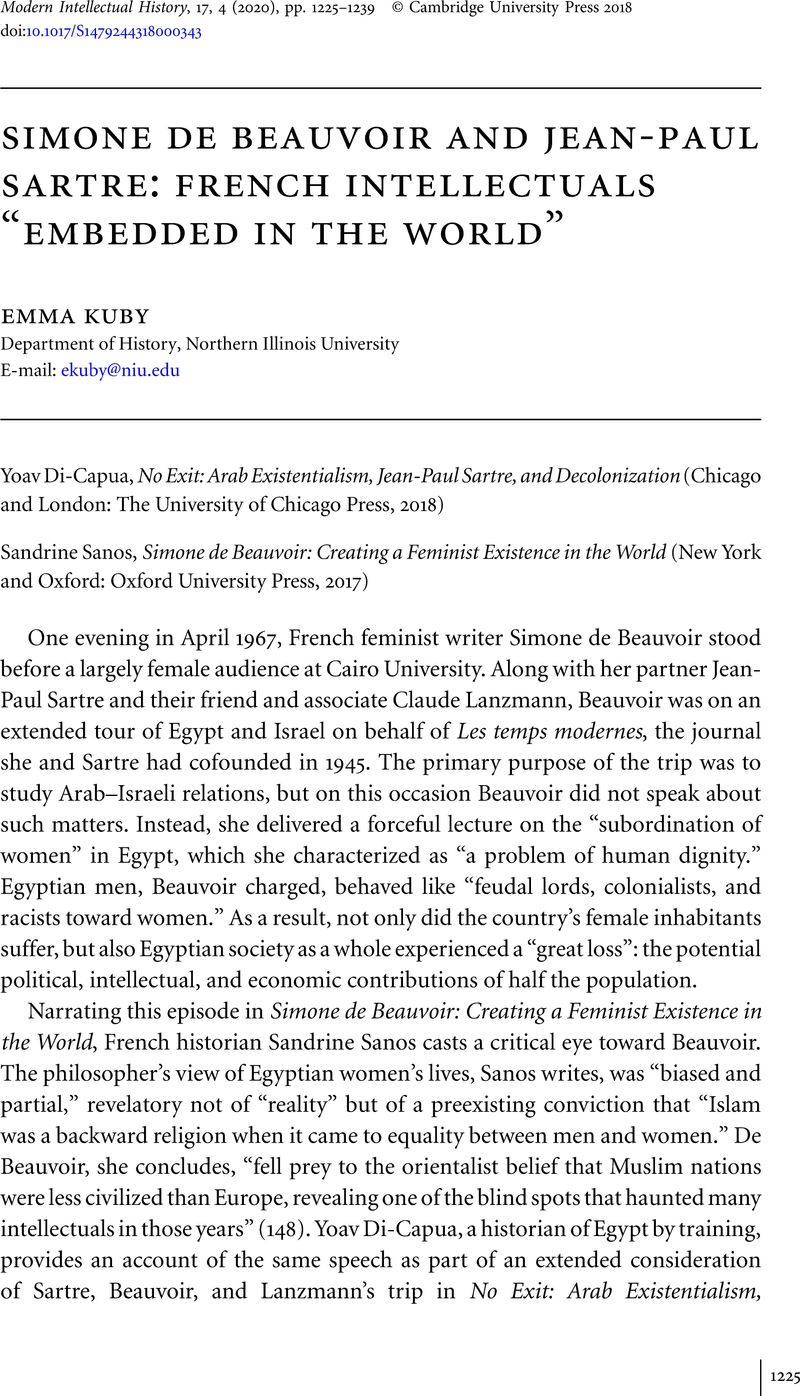No CrossRef data available.
Published online by Cambridge University Press: 22 August 2018

1 Judt, Tony, Past Imperfect: French Intellectuals, 1944–1956 (Berkeley, 1992), 11.Google Scholar
2 Moyn, Samuel, “Imaginary Intellectual History,” in McMahon, Darrin M. and Moyn, Samuel, eds., Rethinking Modern European Intellectual History (New York, 2014), 112–30CrossRefGoogle Scholar, at 118.
3 Judt, Past Imperfect, 279.
4 Perhaps due to its recent publication date, Di-Capua's book does not engage with the arguments about tiers-mondisme developed in Eleanor Davey's study, Idealism beyond Borders: The French Revolutionary Left and the Rise of Humanitarianism, 1954–1988 (Cambridge, 2015).
5 Judt, Past Imperfect, 284.
6 Sanos provides no citation but dates the piece in question to 1950. She presumably has in mind Merleau-Ponty, M. and Sartre, J.-P., “Les jours de notre vie,” Les temps modernes 51 (Jan. 1950), 1153–68Google Scholar. Although this editorial did formally condemn the Soviet Gulag, it did so by way of asserting that public discussion of the issue amounted to an “absolution” of “the capitalist world” for its own equally grave crimes. “Whatever the nature of present-day Soviet society,” argued Sartre and Merleau-Ponty, “the USSR finds itself situated within the equilibrium of forces, grosso modo, on the side of those who fight against the forms of exploitation known to us.”
7 See Sapiro, Gisèle, La responsabilité de l’écrivain: Littérature, droit et morale en France (XIXe–XXIe siècle) (Paris, 2011)CrossRefGoogle Scholar.
8 See Cooper, Frederick, “How Global Do We Want Our Intellectual History to Be?”, in Moyn, Samuel and Sartori, Andrew, eds., Global Intellectual History (New York, 2015), 283–94Google Scholar.